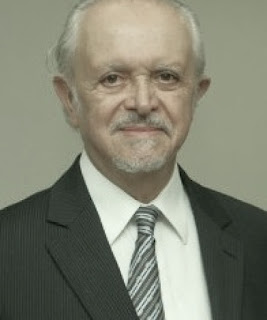The Life and Legacy of a Nobel Prize-winning Chemist and Environmental Scientist.
On Sunday, Google commemorated Dr Mario Molina's 80th birthday, honouring the Mexican chemist who was a trailblazer in advocating for international cooperation to protect the Earth's ozone layer, with a doodle.
Mario José Molina Henríquez known as Mario Molina was a renowned Mexican chemist who dedicated his life to the study of the Earth's atmosphere and its impact on human health and the environment. Born on March 19, 1943, in Mexico City, Molina's academic career spanned decades and was marked by numerous achievements and accolades.
Molina's early life was shaped by his family's commitment to education and social justice. His father was a lawyer, and his mother was a family manager who instilled in him a love of learning and a deep concern for the welfare of others. Molina excelled academically and went on to earn a degree in chemical engineering from the National Autonomous University of Mexico.
After completing his studies, Molina moved to the United States to pursue a PhD in physical chemistry at the University of California, Berkeley. It was there that he began his groundbreaking research on the chemistry of the Earth's atmosphere, specifically the impact of human-made chemicals on the ozone layer.
In 1974, Molina and his colleague, Sherwood Rowland, published a landmark paper in the journal Nature, in which they warned of the danger posed by chlorofluorocarbons (CFCs) to the ozone layer. Their research demonstrated that CFCs, which were commonly used in refrigerants and aerosol sprays, could destroy the ozone layer, which protects the Earth from the harmful effects of ultraviolet radiation.
Molina's work on ozone depletion was instrumental in the development of the Montreal Protocol, an international treaty signed in 1987 that aimed to phase out the production and consumption of ozone-depleting substances. The Protocol has been hailed as one of the most successful environmental agreements in history, and Molina was awarded the Nobel Prize in Chemistry in 1995, along with Rowland and Paul Crutzen, for their work on atmospheric chemistry.
Molina's contributions to science did not end with his work on ozone depletion. Throughout his career, he remained committed to studying the impacts of human activities on the environment and advocating for policies to address environmental issues. He was a member of numerous scientific organizations and served as a science advisor to governments and international bodies.
Molina's life and work were marked by a deep sense of responsibility to use science for the betterment of society. He believed that scientific knowledge should be used to inform public policy and address pressing social and environmental issues. Molina's legacy continues to inspire scientists and advocates around the world to work towards a more just and sustainable future.
Mario José Molina Henríquez passed away on October 7, 2020, at the age of 77. His death was mourned by the scientific community and by people around the world who had been touched by his life and work. Molina's contributions to science and to the fight for a more just and sustainable world will be remembered for generations to come.


